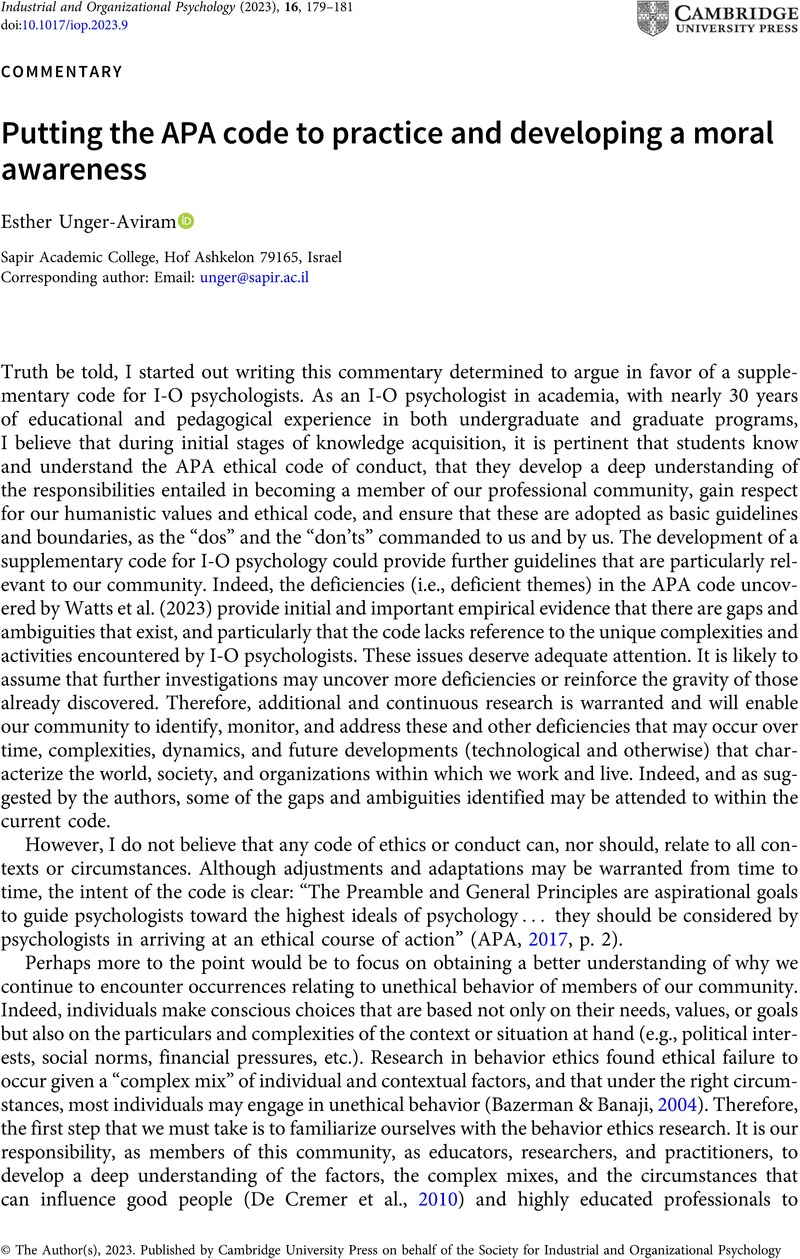No CrossRef data available.
Article contents
Putting the APA code to practice and developing a moral awareness
Published online by Cambridge University Press: 09 May 2023
Abstract
An abstract is not available for this content so a preview has been provided. Please use the Get access link above for information on how to access this content.

Information
- Type
- Commentaries
- Information
- Copyright
- © The Author(s), 2023. Published by Cambridge University Press on behalf of the Society for Industrial and Organizational Psychology
References
American Psychological Association (APA). (2017). Ethical principles of psychologists and code of conduct (2002, as amended 2010, 2016). American Psychologist. http://www.apa.org/ethics/code/index.aspx
Google Scholar
Bazerman, M. H., & Banaji, M. R. (2004). The social psychology of ordinary ethical failures. Social Justice Research, 17, 111–115.CrossRefGoogle Scholar
Butterfield, K., Treviño, L. K., & Weaver, G. R. (2000). Moral awareness in business organizations: Influences of issue-related and social context factors. Human Relations, 53(7), 981–1018.CrossRefGoogle Scholar
De Cremer, D., Mayer, D. M., & Schminke, M. (2010). Guest editors’ introduction: On understanding ethical behavior and decision making: A behavioral ethics approach. Business Ethics Quarterly, 20(1), 1–6.CrossRefGoogle Scholar
Reynolds, S. J. (2008). Moral attentiveness: Who pays attention to the moral aspects of life? Journal of Applied Psychology, 93(5), 1027–1041.CrossRefGoogle Scholar
Watts, L. L., Lefkowitz, J., Gonzalez, M. F., & Nandi, S. (2023). How relevant is the APA ethics code to industrial-organizational psychology? Applicability, deficiencies, and recommendations. Industrial and Organizational Psychology: Perspectives on Science and Practice, 16(2). https://www.siop.org/research-Publications/iop-Journal/IOP-Focal-Articles
Google Scholar

